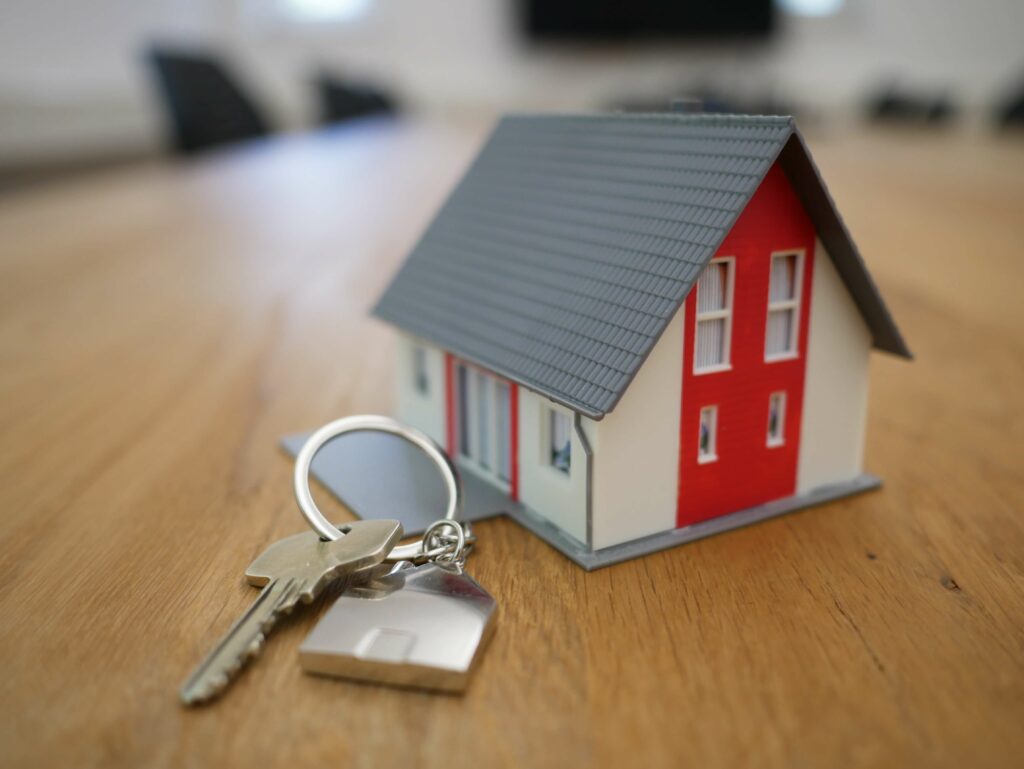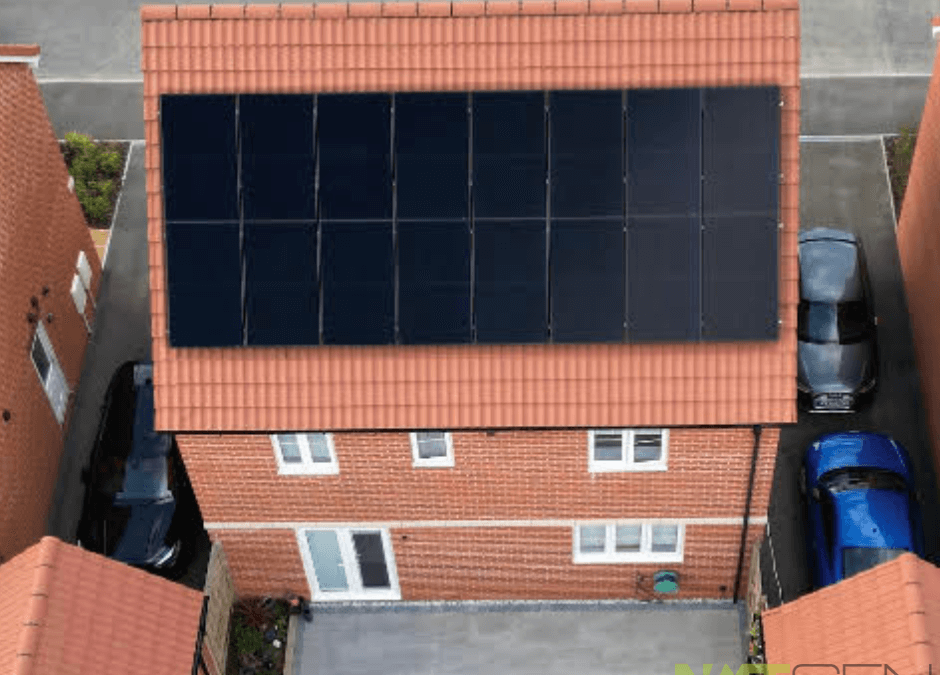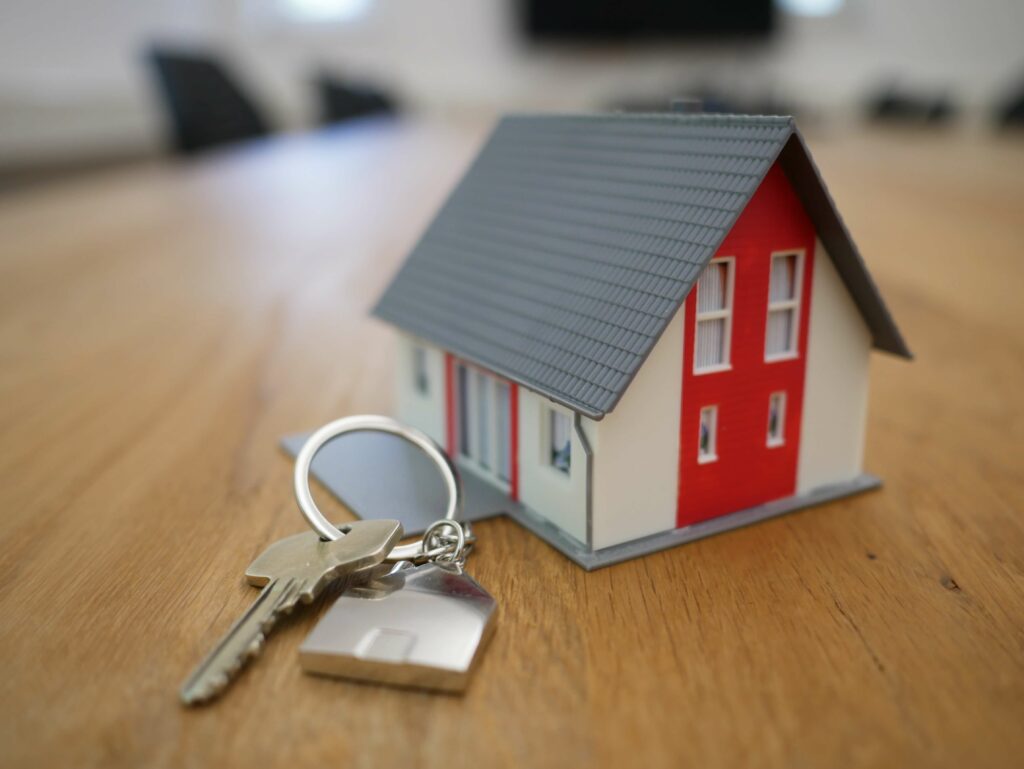


Solar panels are devices that convert sunlight into electricity that you can use in your home or sell back to the National Grid. They are a great way to reduce your carbon footprint and lower your energy bills. In this blog post, I will explain how solar panels work, how much they cost, and how they can offset the rise in mortgage costs in the UK, when mortgages are at an all time high.
How do solar panels work?
Solar panels are made of photovoltaic (PV) cells, which are composed of layers of silicon and other materials. When sunlight hits the PV cells, they create an electric field that causes electrons to flow. This flow of electrons is called a direct current (DC), which is then converted into alternating current (AC) by a solar inverter. AC is the type of electricity that powers most appliances and devices in your home.
The electricity generated by solar panels can be used in two ways:
- You can use it to power your own appliances and devices, reducing the amount of electricity you need to buy from your energy supplier. This is called self-consumption. If you add solar battery storage to your solar panel array and your solar inverter you can store any excess solar power for your own use at a later time, so when the sun shines you get more power and don’t have to rely on the National Grid.
- You can export any excess electricity you don’t use to the National Grid, earning money from your supplier or a third-party company. This is called the export tariff or the Smart Export Guarantee (SEG) scheme.
How much do solar panels cost?
The cost of solar panels depends on several factors, such as the size, type, quality, and location of the system. The average cost of installing a 4kWp system (the most popular size in the UK) is around £6,500. However, this can vary depending on the roof orientation and the complexity of the installation.
The cost of solar panels also includes the solar inverter, controls, batteries (if you opt to store your solar energy) and installation fees. The solar inverter is the device that converts DC into AC. The controls are the devices that monitor and regulate the performance of the solar PV system. The solar battery storage allows you to store your solar energy for future use. The installation fees depend on the labour and materials required for the job.

How can solar panels offset the rise in mortgage costs?
Mortgage costs are the amount of money you pay to borrow money from a lender to buy a property. They include the interest rate, fees, and charges that apply to your loan. Mortgage costs can vary depending on the type and term of your loan, as well as the market conditions and your credit score.
According to property website Rightmove, the current average mortgage rate for a five-year fixed, 85% loan-to-value mortgage is 5.90%, up from 5.69% last week. The lowest rate for this type of mortgage is 5.48%. The average monthly mortgage payment on a first-time buyer type property for someone taking out a five-year fixed, 85% LTV mortgage is now £1,224, up by £20 per month compared to last week. The Bank of England’s interest rate has gone up from 4.5% to 5% – its highest level in 15 years and a bigger rise than most forecasters expected.
Solar panels can help you offset the rise in mortgage costs by saving you money on your electricity bills and earning you money from exporting electricity to the national Grid. The amount of money you can save or earn depends on several factors, such as:
- The size and efficiency of your solar panel system
- The amount and timing of your electricity consumption
- The price and availability of export tariffs or SEG
- The location and orientation of your roof
- The weather conditions and seasonality
A typical 4kWp system in London can save you around £240 per year on your electricity bills and earn you around £110 per year from SEG (assuming a rate of 4p/kWh). This means you could save or earn around £350 per year in total from solar panels.
If you apply this amount to your mortgage payments, you could reduce your monthly cost by around £29 or pay off your mortgage sooner by making overpayments (if you have that facility on your mortgage). Over 25 years, this could save you thousands of pounds in interest and fees.
Of course, these figures are only estimates and may vary depending on your individual circumstances and preferences. You should always compare different quotes from installers and lenders before making any decisions.
Conclusion
Solar panels are a great way to generate your own renewable electricity and save money on your energy bills. They can also help you offset the rise in mortgage costs by reducing your monthly payments or paying off your mortgage faster. However, solar panels are not cheap and require careful planning, but here at NXTGEN Energy we offer free advice and a free quote and design service with no-obligation. If you are interested in investigating solar panels for your property contact us on 01268 928 690 or click the button below.


 Why You Should Consider Solar Pa...
Why You Should Consider Solar Pa...




